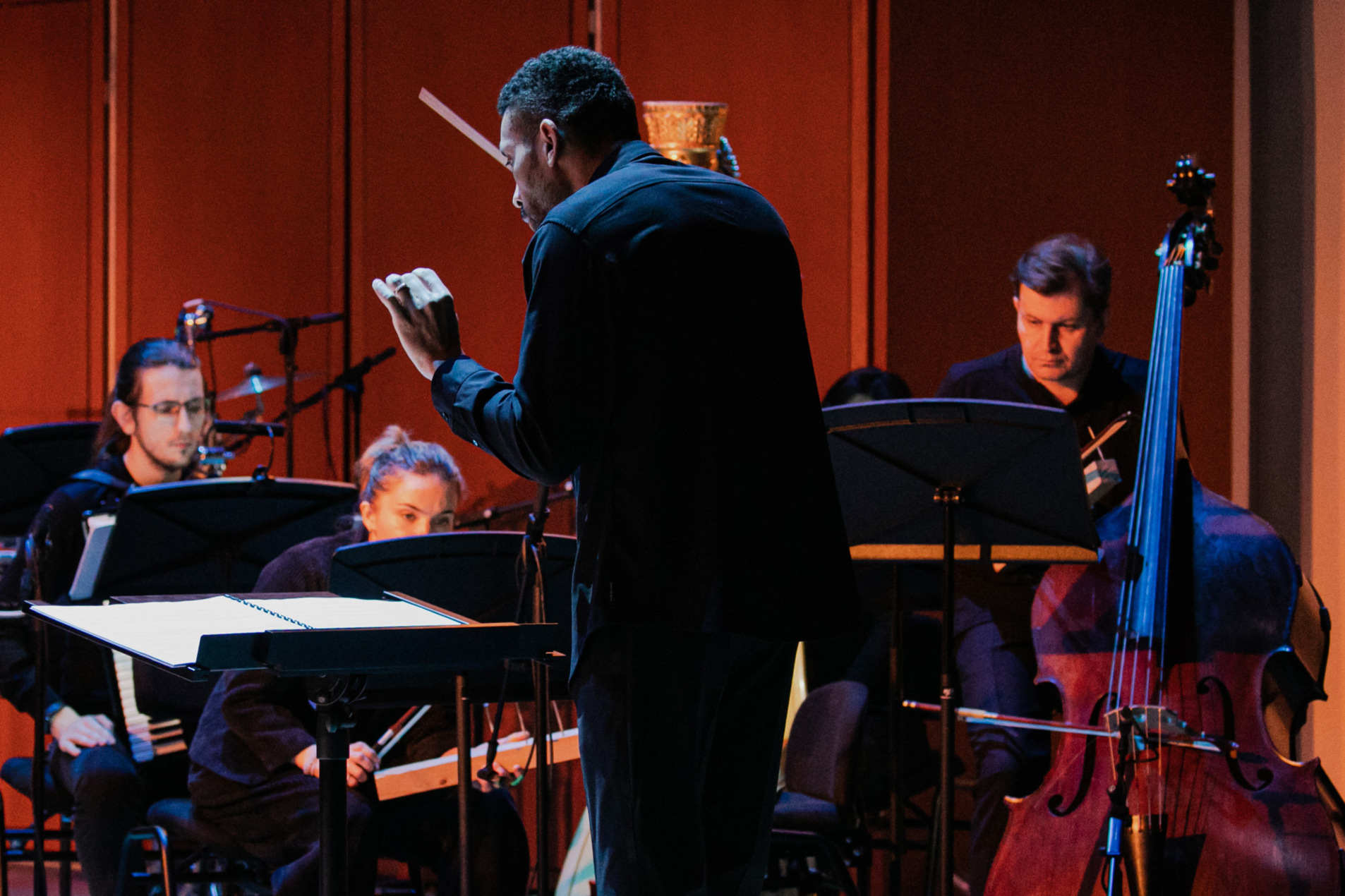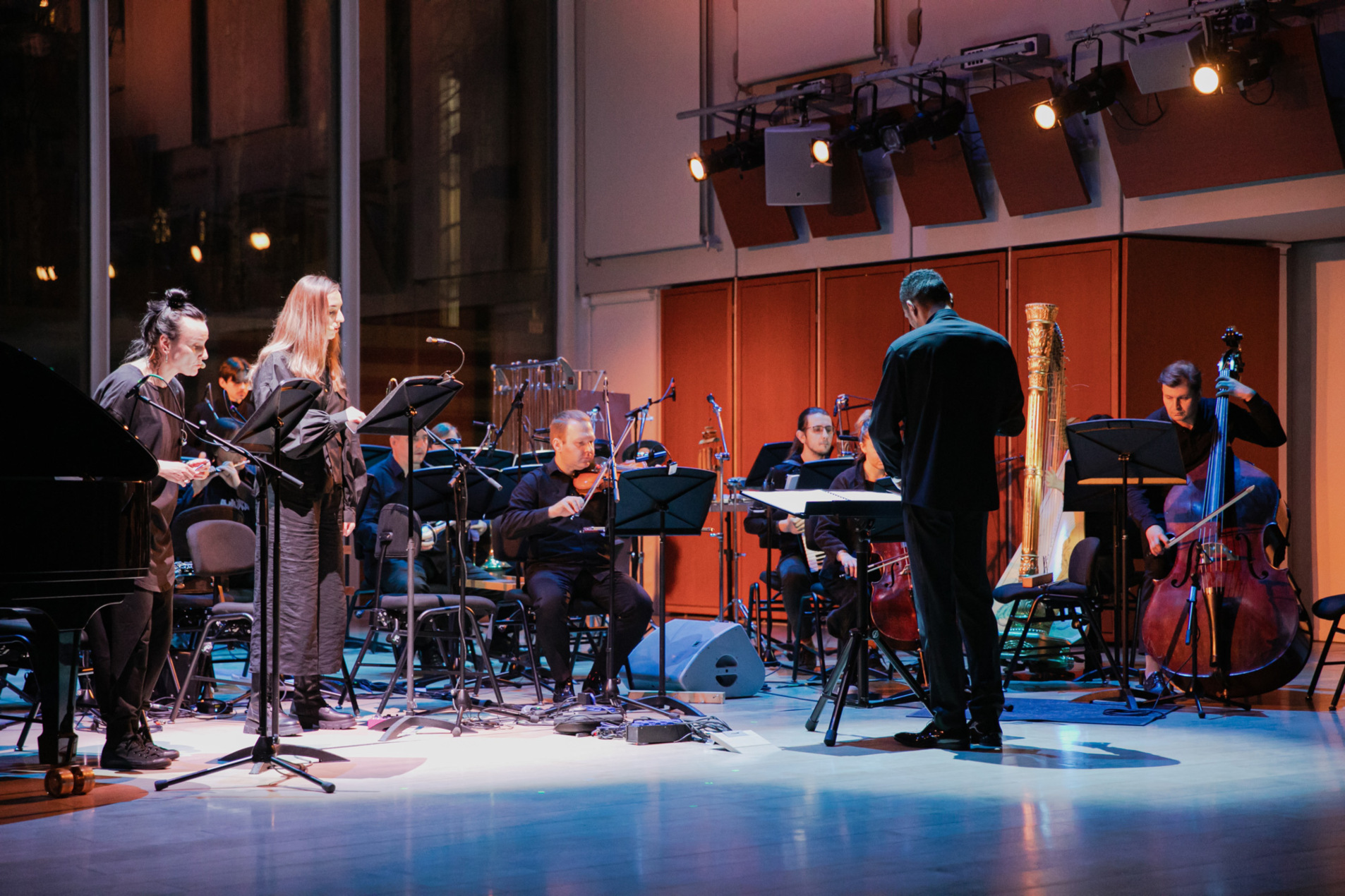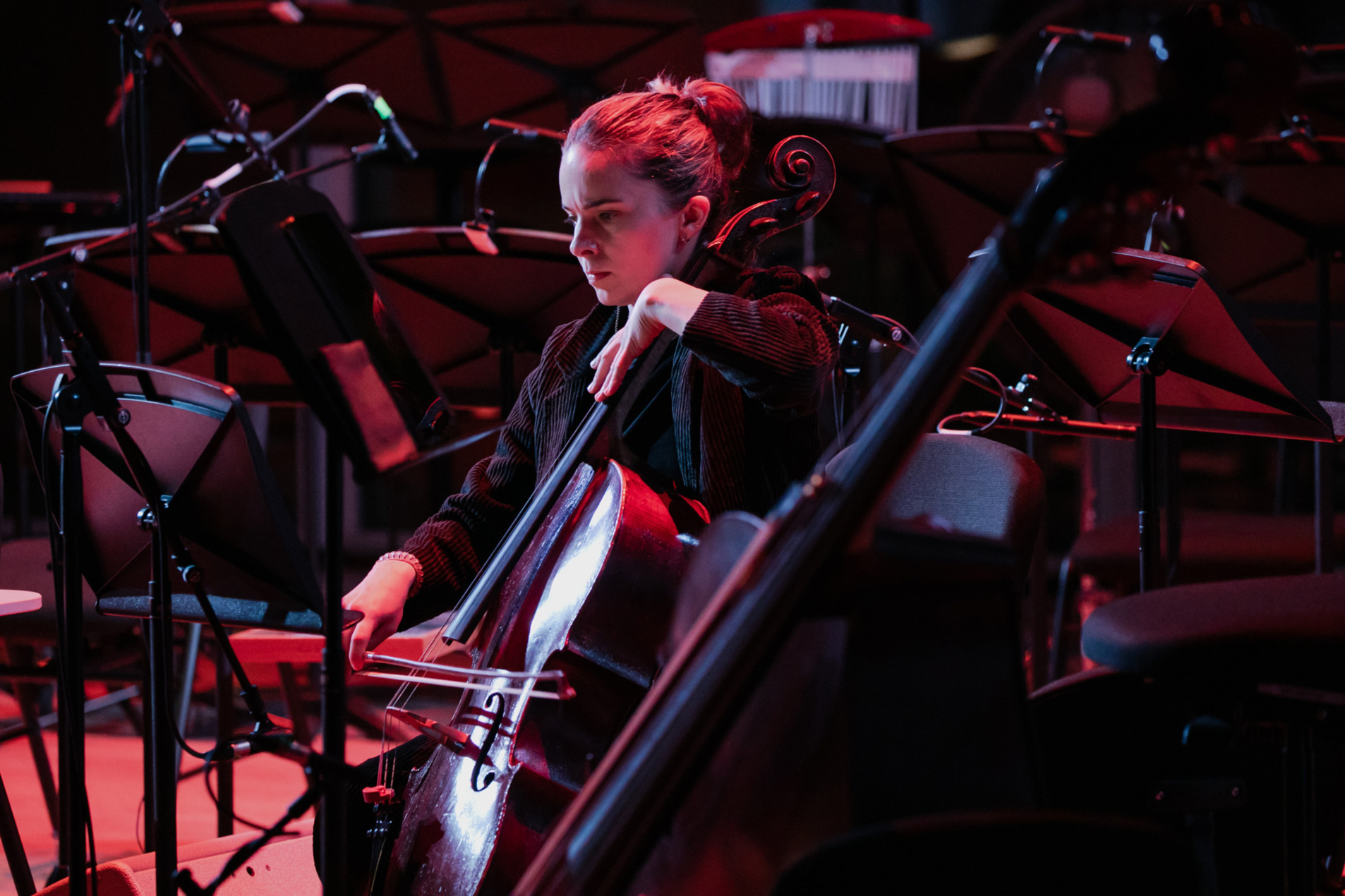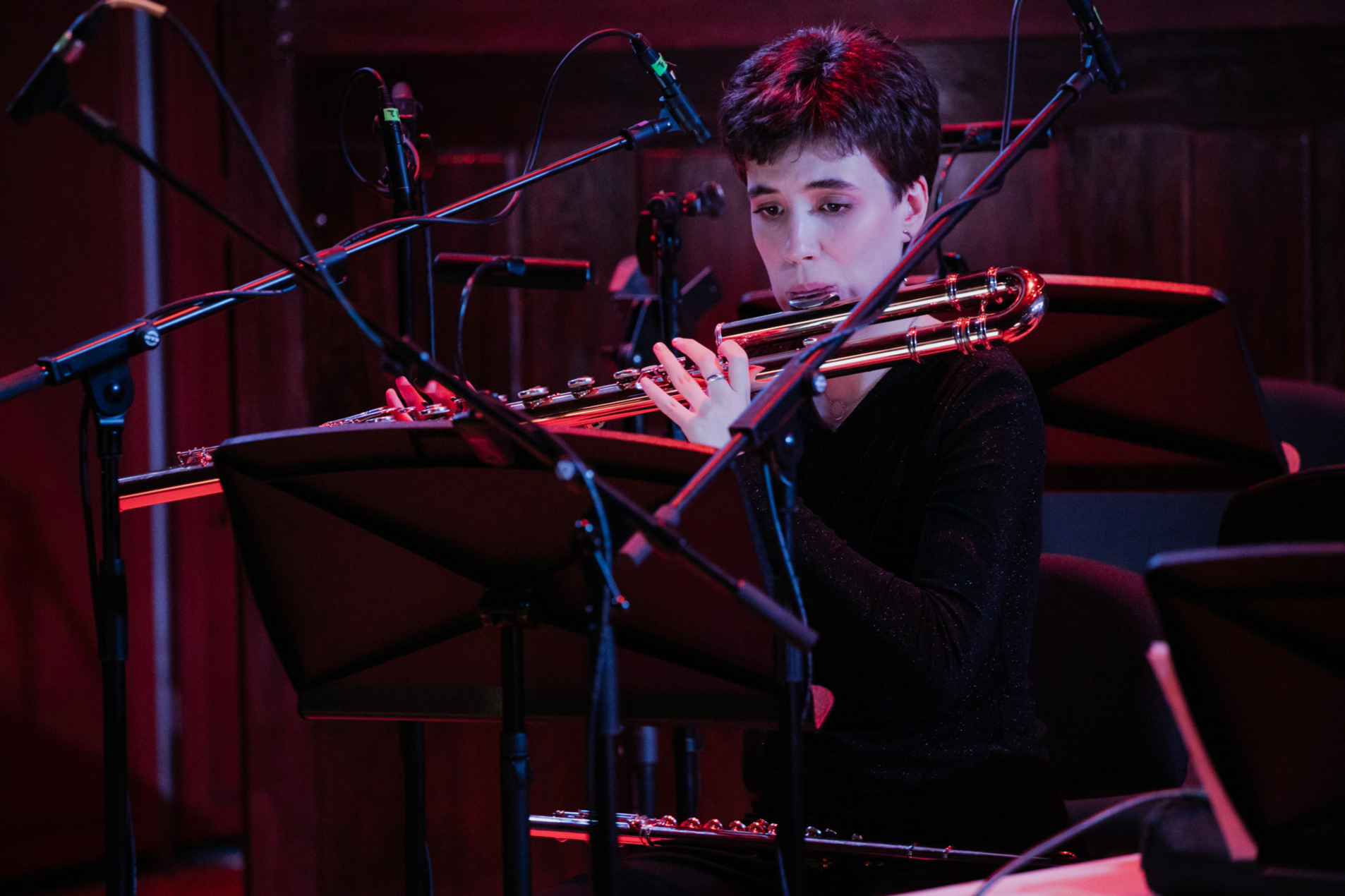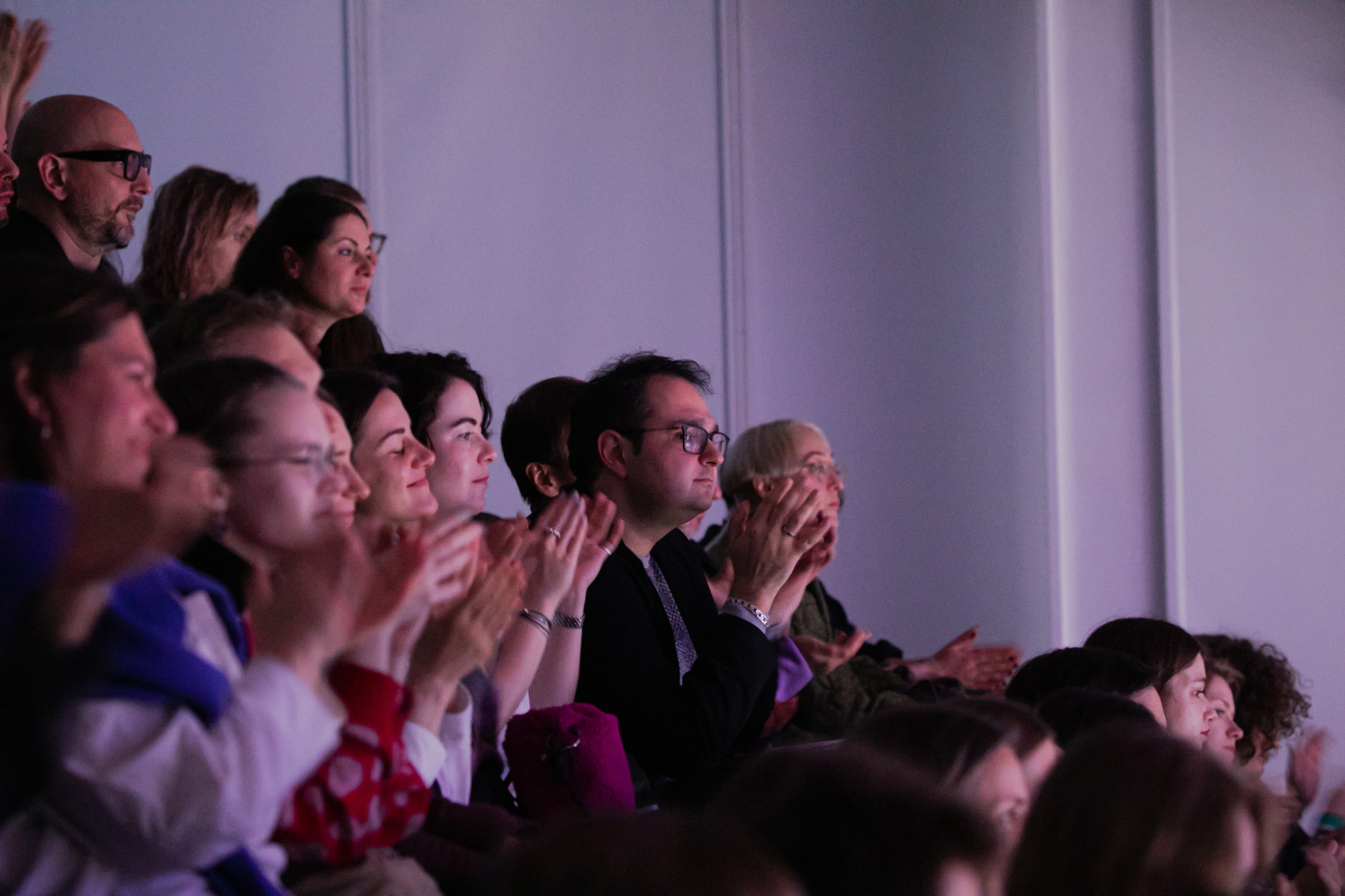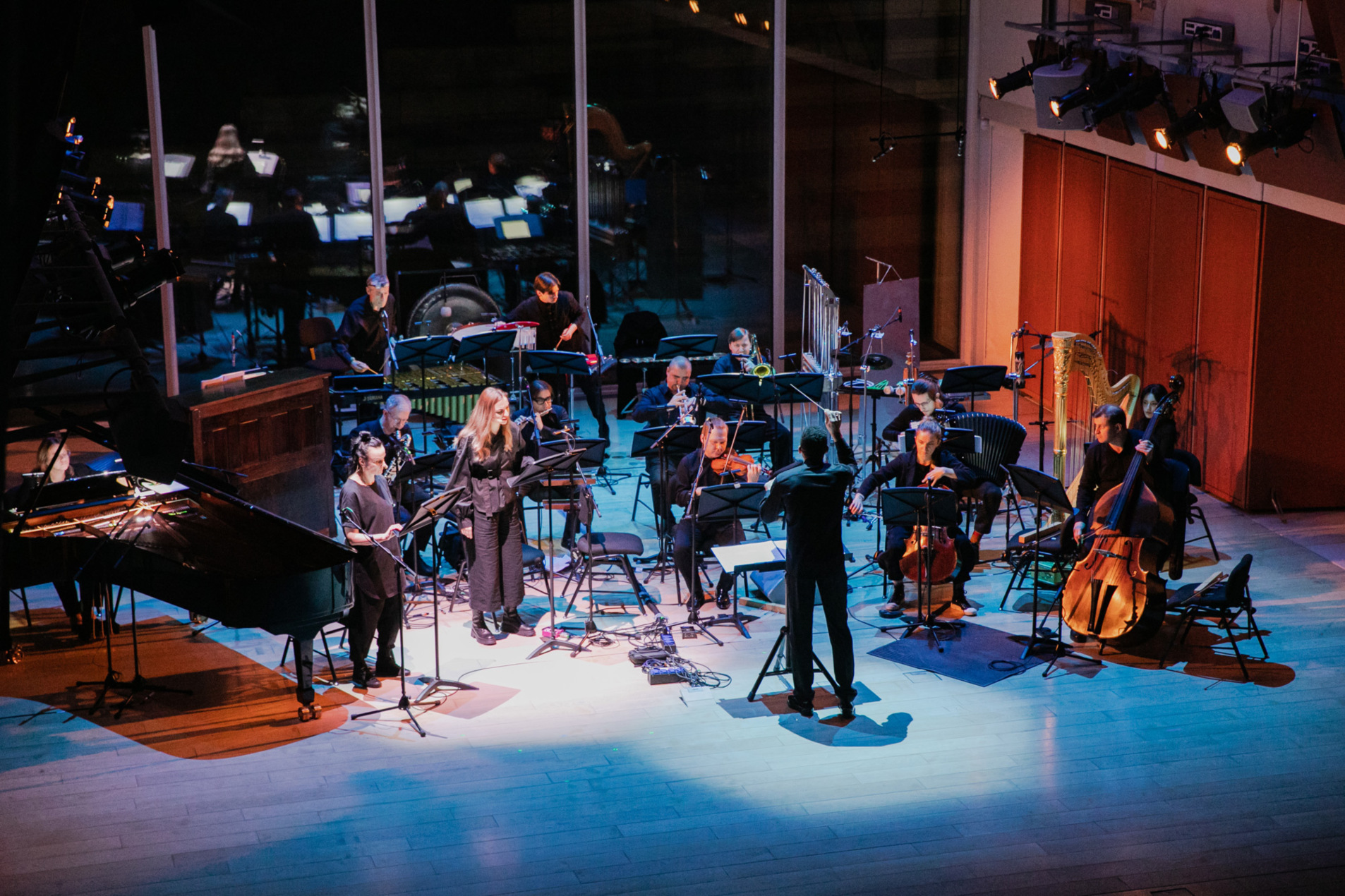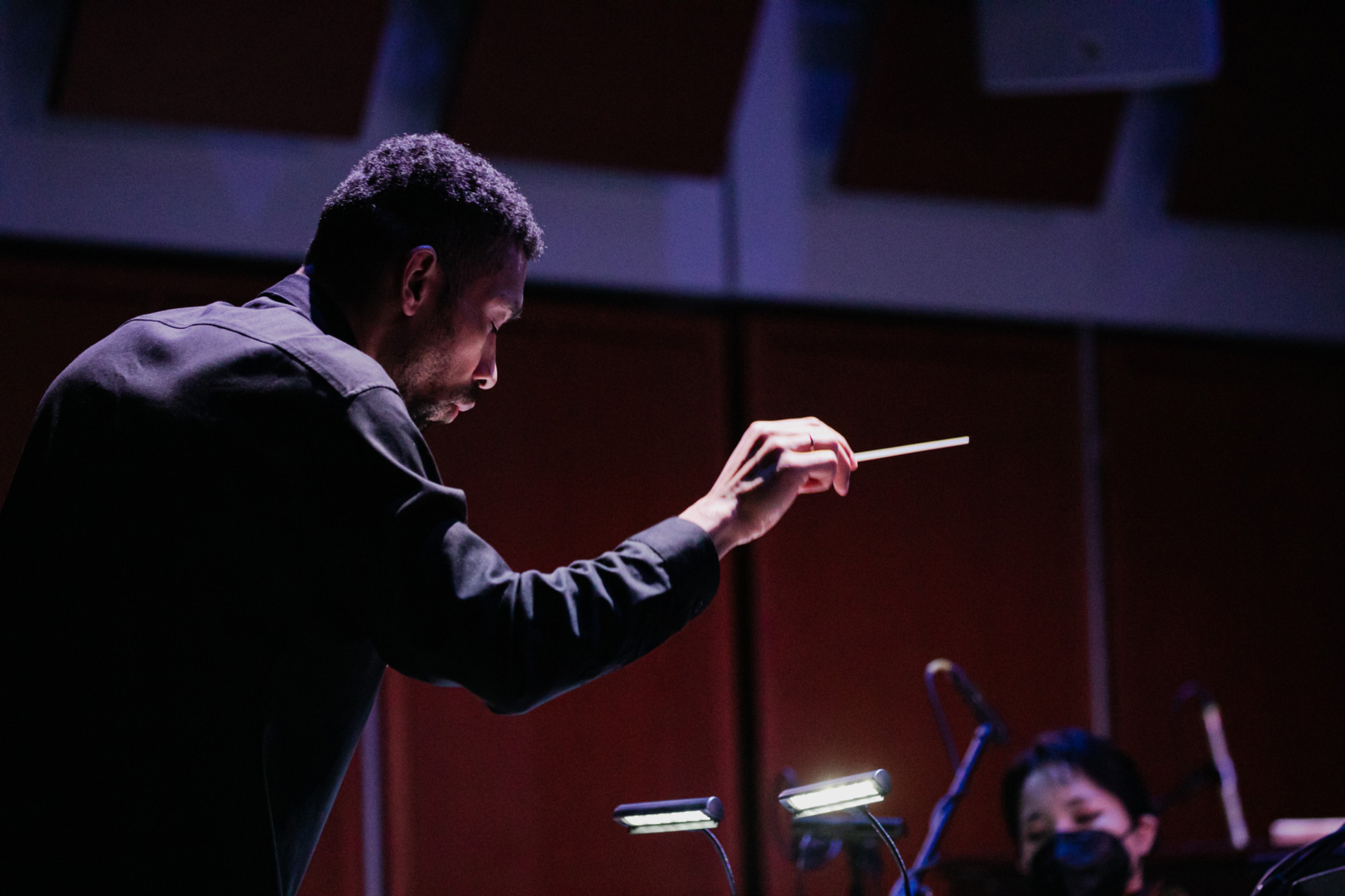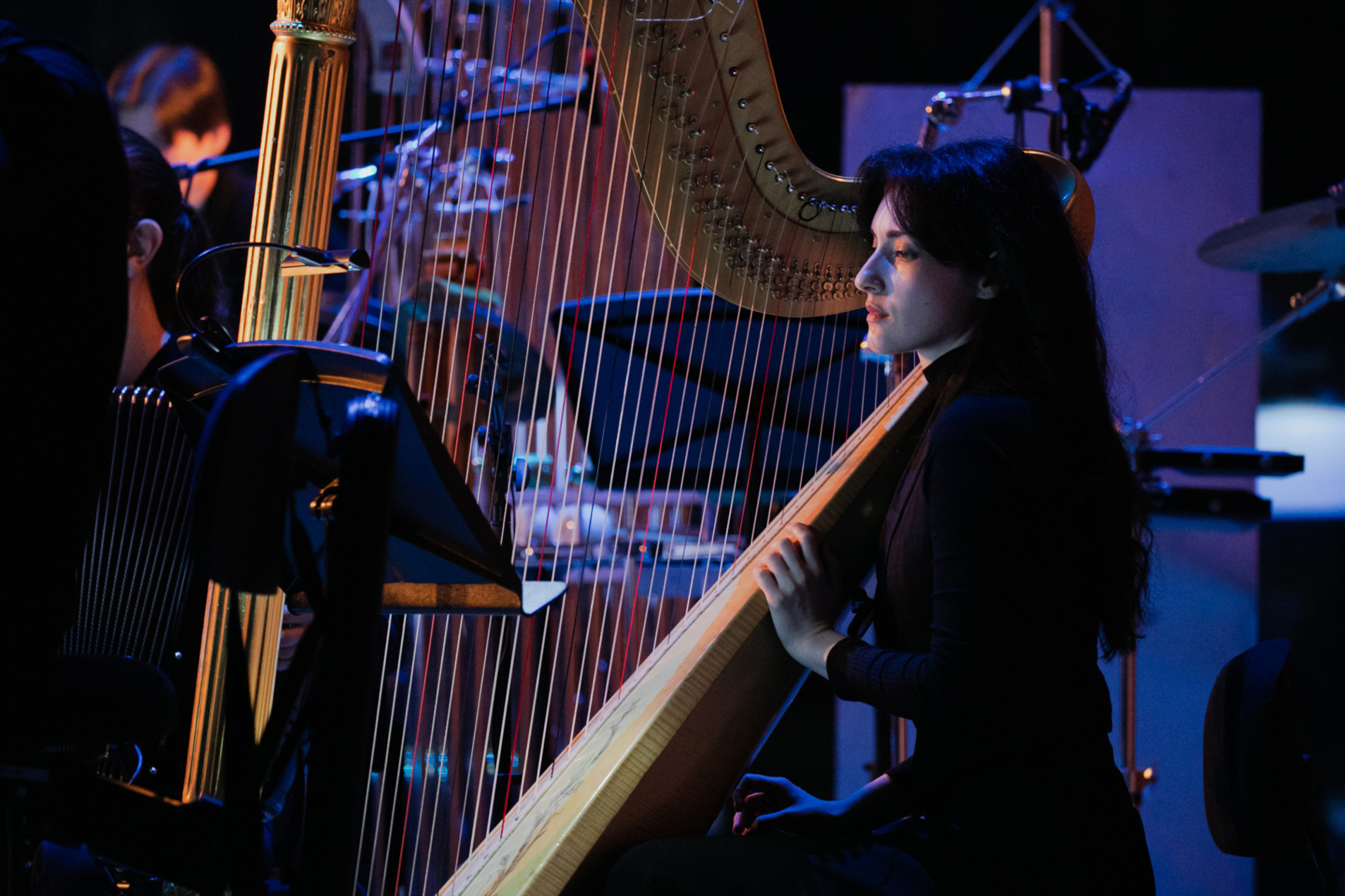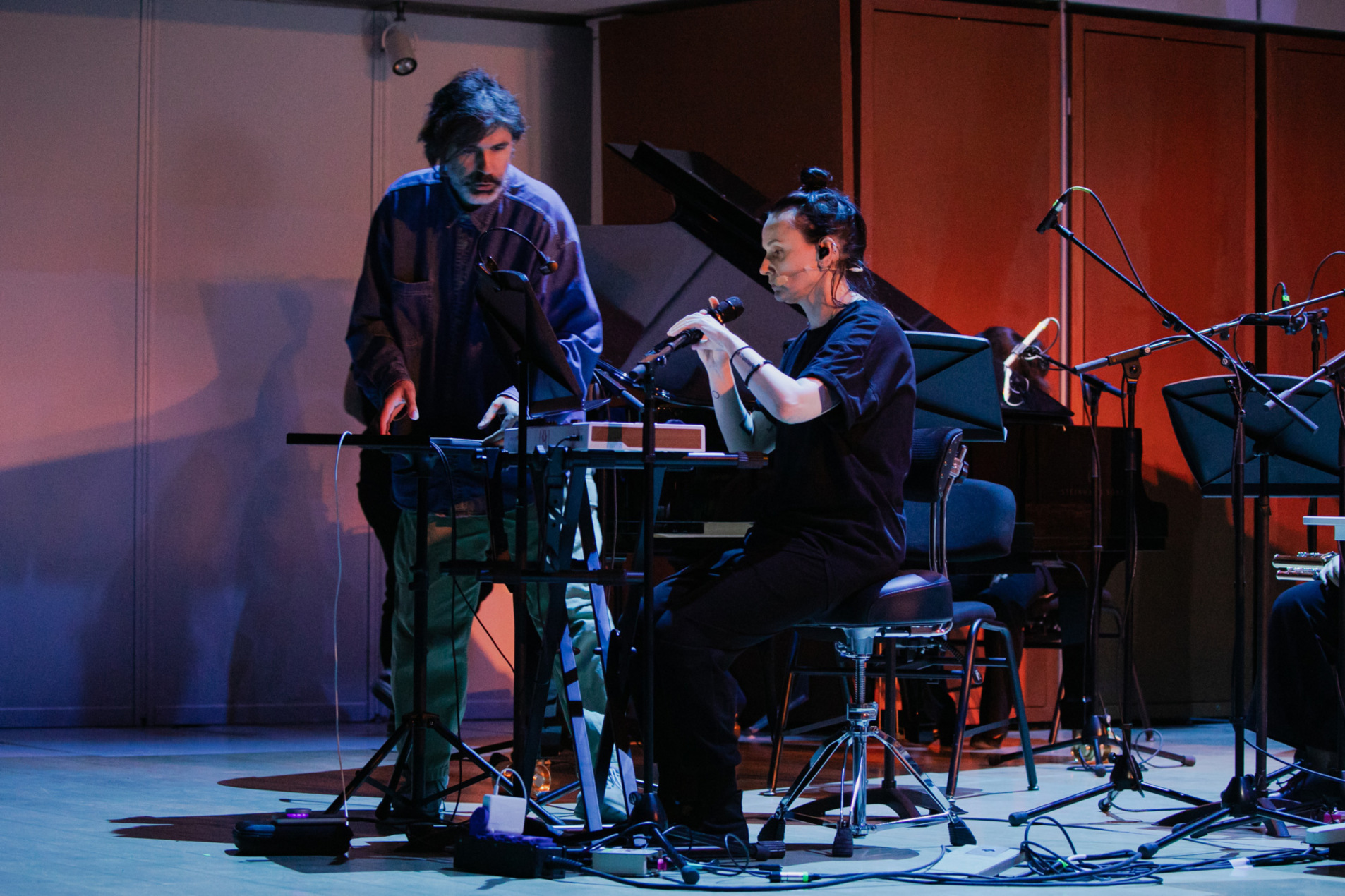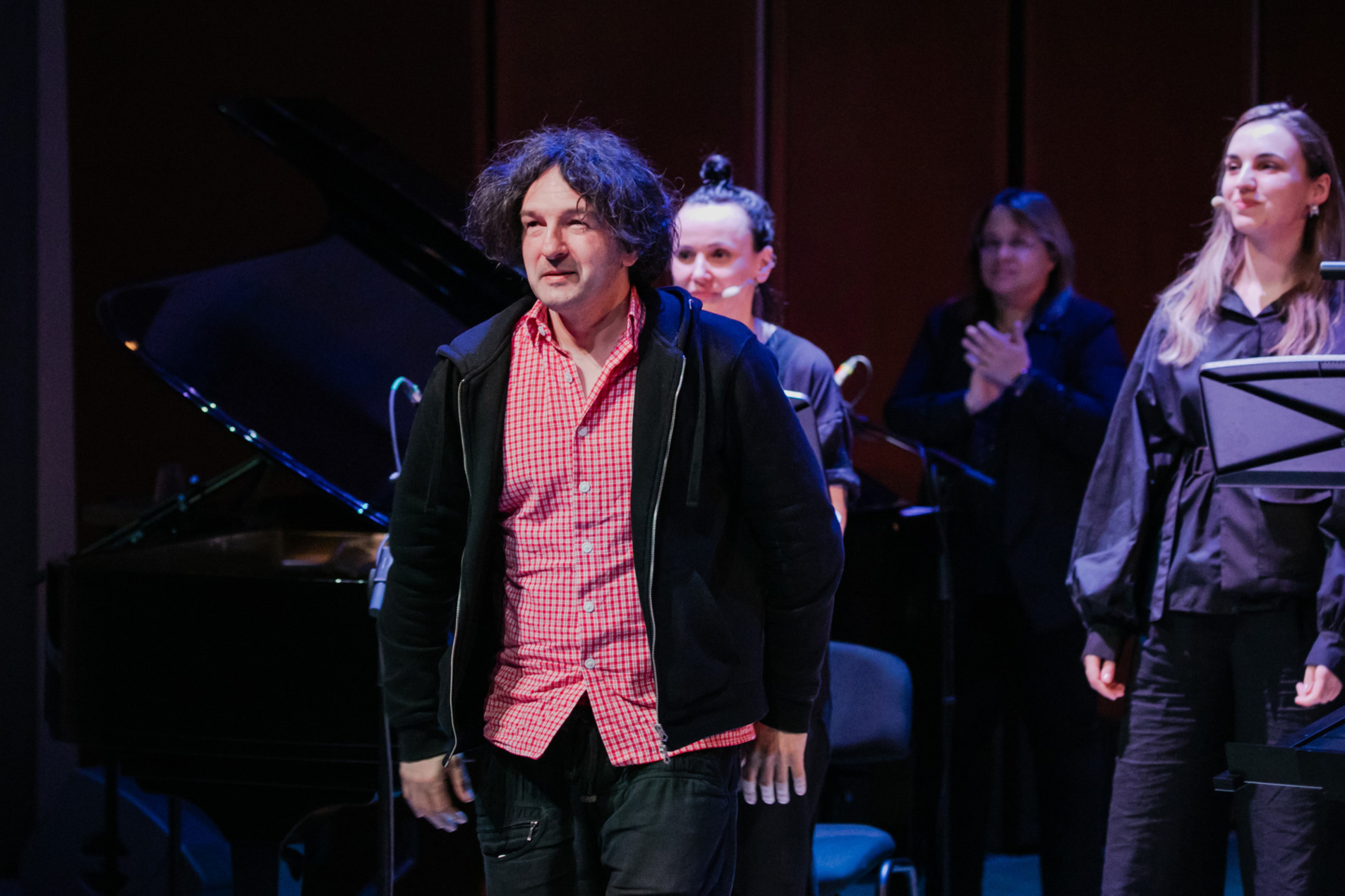Two musical scores commissioned by
Words and Spaces. Gustav Mahler, Vladimir Rannev, Ivan Bushuev
- Date:
- 6 Apr 2024,
20:00–21:30
- Age restrictions
- 12+
Programme
Vladimir Rannev (b. 1970)
Serenade
Text by Lev Rubinstein arranged for two voices and ensemble (2024, world premiere)
Commissioned by
Ivan Bushuev (b. 1984)
“...I try to imagine someone saying to Shakespeare: ‘Relax!’”
Text by Andrei Monastyrsky arranged for voice and ensemble (2024, world premiere)
Commissioned by
Gustav Mahler (1860–1911)
Kindertotenlieder (1904)
Settings of texts by Friedrich Rückert arranged for chamber orchestra by Reinbert de Leeuw
(1983, first performance in Russia)
Gustav Mahler’s Kindertotenlieder (“Songs on the Death of Children”) shaped contemporary vocal music. These five songs for solo voice and orchestra, which Mahler completed in 1904, represented a fundamentally new understanding of the song cycle genre. In Mahler’s hands the song cycle became more complex than ever before, attaining the stature of a confessional statement with its own internal drama subordinated to symphonic development. Making free use of texts by the German poet Friedrich Rückert (1788–1866), who wrote the poems in response to the early death of two of his own children, the composer rebuilds poetic form following an entirely musical logic. The lyrical hero is cleansed of individual, specific features, of physicality and character: Mahler endeavours to portray the existential essence of “man in general.” The Kindertotenlieder transform the concert podium into a stage for vocal-instrumental theatre, without visible action but with an expressiveness close to monodrama.
Two new works by Vladimir Rannev and Ivan Bushuev, written to texts by two of the founders of Moscow conceptualism, Lev Rubinstein (1947–2024) and Andrei Monastyrsky (b. 1949), draw on the tradition that was founded by Mahler’s song cycle.
World premieres of the new works by Russian composers commissioned by
Alexei Nyaga conductor
Natalia Buklaga mezzo-soprano
Elena Gvritishvili soprano
Arina Zvereva soprano
Moscow Ensemble of Contemporary Music | MACM
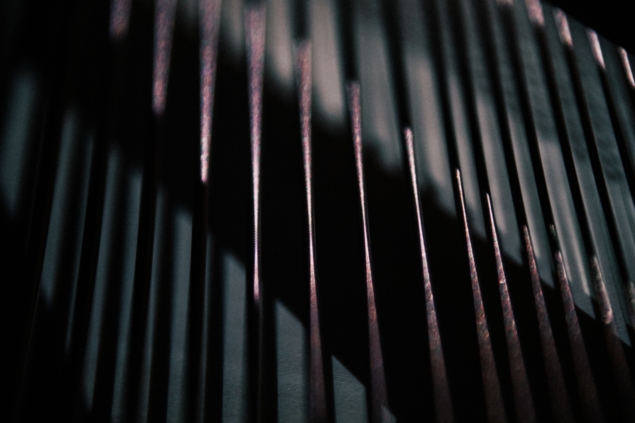
Photo: Anya Todich
I had been looking for a text that would capture what the Germans call the Zeitgeist, the spirit of the times, and I eventually came across a tercet by Lev Rubinstein: “Nasha zhizn sama soboy / Po volnam nesetsya / S beskonechnoyu toskoy” (“Our life, by itself, / Rides the waves / With endless longing”). The lines combine remote contemplation by a thoughtful observer, typical of Rubinstein’s texts, with a sensitive play on the serenade genre, which implies an appeal—not necessarily to somebody in particular, but to sublime abstractions. In Rubinstein’s work existence itself becomes that abstraction: for a person with no chance of choosing their own destiny, existence becomes a pure ephemerality, to which they relate as to something or someone who is adored but unobtainable. In the score I treat Rubinstein’s three lines as an incantation, a mantra, a formula for coming to terms with reality, a formula that you grasp like a lifeline in order to believe in it.
— Vladimir Rannev
Andrei Monastyrsky’s poetry is musical by nature. It is based on repetition, movement and verbal patterns that are transformed with each new round, so that the same material is heard in completely different ways. I was inspired by an archive recording of Monastyrsky reading his poem Sochineniye 73 goda (“Composition from the Year Seventy Three”). Monastyrsky emphasises the rhythmic organisation of the poem so that, at a certain point, you abstract from the narrative and become completely immersed in the musical structure of this stream of consciousness, in the suggestivity of the human voice. While working on the score I was reading a book of essays by Susan Sontag where I came across a quote from Elias Canetti. That quote gave the work its title because it paradoxically revealed to me the multifaceted nature of Monastyrsky’s text, which balances on a knife edge between the sacred and the absurd, heaviness and lightness, alogism and meaning. The result is something that resists the meaninglessness of time.
— Ivan Bushuev
Photo: Anya Todich
Alexei Nyaga (b. 1979, Leningrad) is a conductor. Alexei Nyaga studied choral, operatic and symphonic conducting at the St. Petersburg Conservatoire. He has worked with the St. Petersburg Capella Orchestra, the State Hermitage Orchestra, and the St. Petersburg State Academic Symphony Orchestra as well as at the Zazerkalye and Mikhailovsky Theatres in St. Petersburg. In 2014, he was an assistant conductor in a production of Tchaikovsky’s The Enchantress at the MusikTheater an der Wien (Vienna, Austria). He also conducted the Symphony Orchestra of the Karelian Philharmonic in the 2014/2015 and 2022/2023. He is currently resident conductor at the Samara Academic Theatre of Opera and Ballet.
Natalia Buklaga (b. 1979, Perm) is a singer. Natalia Buklaga studied singing at the Perm State Institute of Culture. She is a soloist at the Perm Opera and Ballet Theatre and at the Ural Opera (Yekaterinburg). She performed in the recording for Sony Classical of Igor Stravinsky’s Les Noces under the baton of Teodor Currentzis (2013). Natalia Buklaga sang the Pilgrim in the Russian premiere of the opera L’Amour de loin by Finnish composer Kaija Saariaho (Ural Opera, 2021). She has been short-listed four times for Russia’s Golden Mask National Theatre Award (in 2013, 2015, 2021, and 2023). She tours regularly in Ireland, Greece and Spain.
Elene Gvritishvili (b. 1999, St. Petersburg) is a singer. Elene Gvritishvili studied under Fyodor Lednev and Anna Meya at the conducting and choral department of the St. Petersburg Conservatory. She is now a student of the vocal department at the St. Petersburg Conservatory under Svetlana Gorenkova. Since 2020, she has been a member of the musicAeterna choir. She performed in Alexander Manotskov’s production 52 at the Tovstonogov Drama Theatre in St. Petersburg. Since September 2022, Gvritishvili has been an artist of the Youth Opera Programme at the Bolshoi Theatre in Moscow.
Arina Zvereva (b. 1978, Moscow) is a singer and conductor. Arina Zvereva studied at the Moscow Conservatory. She was guest choirmaster (from September 2011) and then resident choirmaster (2012–2014) of musicAeterna. Since 2013, she has led the vocal ensemble of the Stanislavsky Electrotheatre. She won the Russian opera award, Casta Diva, for her performance in the Russian contemporary opera Prose (2017). She also won the Golden Mask National Theatre Award for her performance in Octavia. Trepanation (2021). Zvereva is the founder and artistic director of the contemporary music vocal ensemble N’Caged.
